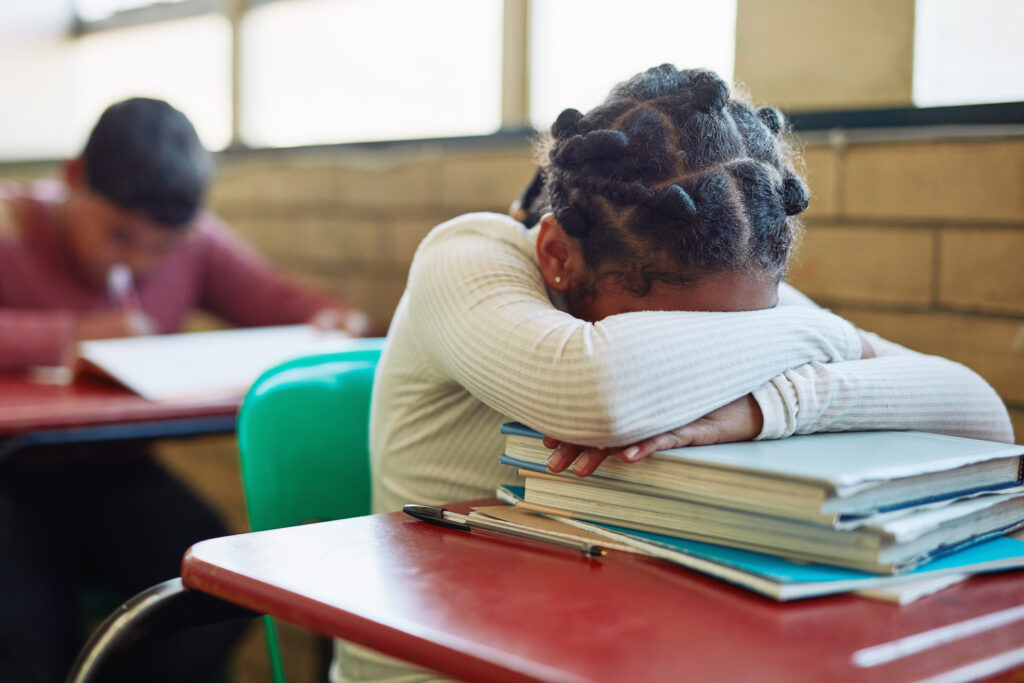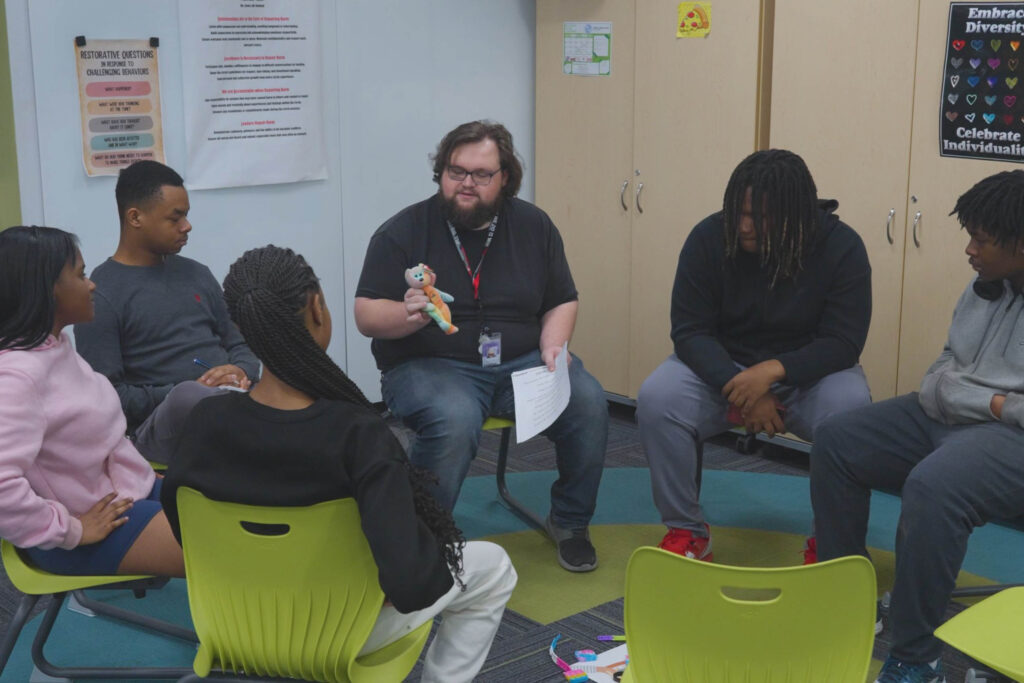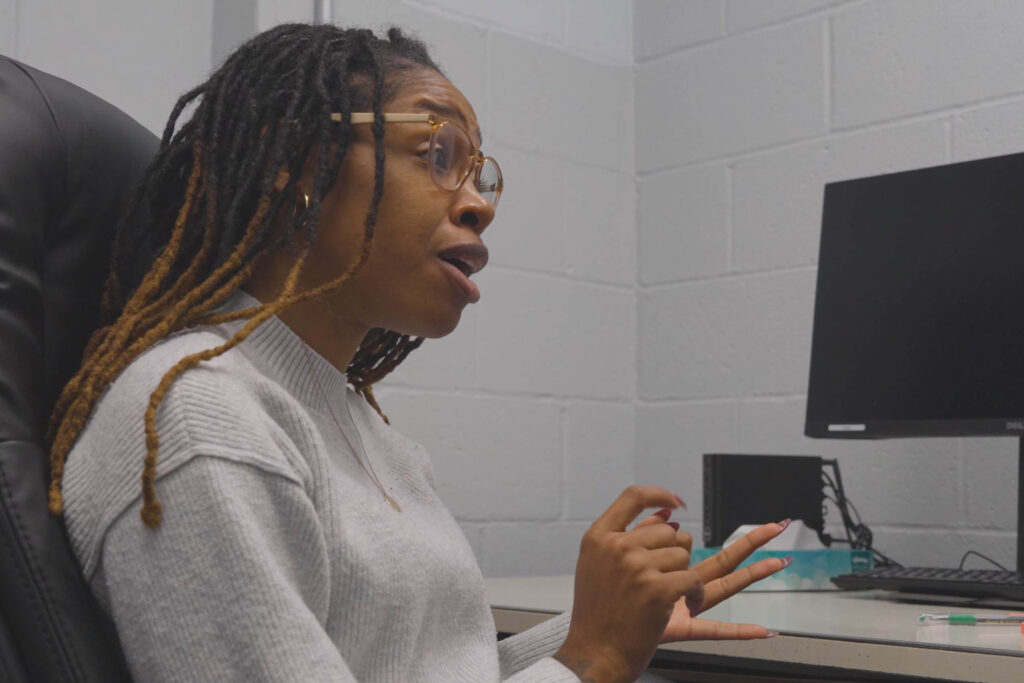Imagine being 12 years old, lying awake all night while your parents scream at each other, break things, and slam doors. Your father is drunk and raging. You’re terrified someone might get hurt — or worse. You huddle with your siblings, trying to keep them safe.
When morning comes, your mom has a black eye, your dad is passed out, and you have to take care of everyone. You haven’t eaten. You haven’t finished your homework. You’re exhausted. Then you walk into school and get yelled at for falling asleep in class, and no one knows what you’ve just been through.

These are the kinds of stories I began hearing when I became Executive Director of Community Youth Network, a nonprofit mental health agency, nearly 14 years ago. Stories of kids carrying the weight of grown-up problems without anyone to talk to. Stories that stuck with me.
Mental Health Among Youth
The mental health crisis among youth isn’t new. Adolescents throughout the nation have struggled with depressive symptoms at a rising rate since 2011. And the pandemic made it worse. Since 2020, kids have been struggling more with clinical depression, anxiety, and loneliness, and often silently.
In the 2024 Illinois Youth Survey for Lake County, 35 percent of 10th graders and 38 percent of 12th graders reported symptoms of depression in the past year. Nearly one in 5 said they had seriously considered suicide. These numbers aren’t abstract — they represent real kids sitting in real classrooms, trying to cope.
Fighting the Youth Mental Health Crisis at School
The Community Youth Network wanted to do something to help the youth in our community cope with the mental health challenges they were facing. So, we started putting therapists directly into schools.

The idea is simple: meet kids where they are. When mental health care is part of the school day, there’s no need for parents to schedule appointments or arrange transportation. It becomes part of the support system, like lunch, gym, or the nurse’s office.
And it works. Students feel safer talking to someone they see regularly, someone who understands their world. For many of the kids we serve, school is the most stable place in their lives. When a trusted therapist is there, real progress happens.
This model also breaks down barriers that prevent families from accessing care, such as a lack of insurance, transportation, or trust in mental health treatment. Some parents don’t believe in therapy, aren’t well enough themselves, or are just too exhausted to seek help for their children. In schools, those barriers disappear.
Our therapists provide skill-building, trauma-informed individual and group counseling, and lead restorative practice sessions or peace circles that help students manage conflict, take responsibility, and repair harm. When conflict is addressed restoratively instead of punitively, kids stay connected to school and each other, and healing begins.

We prioritize keeping the same therapist in the same school year after year, as well as hiring from the communities we serve, because consistency and familiarity build trust. Students and faculty begin referring themselves — or their friends — because they know someone is there for them.
These are more than school skills — they’re life skills. We’ve seen students advocate for themselves, express emotions in healthier ways, and build empathy. Some are the first in their families to ever receive mental health support.
Growing Mental Health Support Across Schools Nationwide
Most schools don’t have the resources to meet the growing mental health needs of their students. The National Association of Social Workers recommends one school social worker for every 250 students in general education settings — what’s often called Tier 1. But in higher-need environments, or Tier 2 schools, where many students face poverty, trauma, or housing instability, the recommended ratio is 1:50.
Many schools in our county’s under-resourced districts fall far short of either standard. Often, the ratio is one social worker for every 1,000 students, which is simply not sustainable, and educators can’t shoulder the emotional burdens their students carry alone.
That’s where embedded therapists come in — to ensure students have reliable, in-school access to someone who’s there to listen, support, and help them heal. Anecdotally, once we started doing this, we found research that backs this practice, bringing therapeutic services directly into schools is best practice for engaging and treating youth since:
- The youth are accessible.
- Mental health issues are often readily apparent in the school setting.
- Youth are more likely to engage in services when they are provided directly in school.
What started in one school has now expanded to 20 schools across Lake County, many of them Tier 2. Our therapists also support teachers by helping them recognize how trauma shows up in behavior and how to respond in ways that don’t escalate a situation.

More than 85 percent of the students we work with report meeting their goals and feeling better. But while the numbers are encouraging, what stays with me are the stories. The quiet “thank you” from a student who finally feels seen. The kid who starts to smile again. The one who no longer falls asleep in class.
Mental health support belongs in schools — and when it’s there consistently, it changes lives.
September is Suicide Prevention Awareness Month — a reminder that early intervention can save lives. If your family, school, or community isn’t talking about student mental health, now is the time to start the conversation.
How to Help
Community Youth Network is a comprehensive mental health facility providing programming to individuals of all ages across Lake and McHenry Counties. At its core, CYN works to preserve and strengthen families while protecting children from abusive or high-risk situations.
Donations to CYN help them provide their continuum of care, which includes education and advocacy, crisis support, specialty and generalized intervention and treatment, case management, and evidence-based mental wellness practice.

This post was submitted as part of our “You Said It” program.” Your voice, ideas, and engagement are important to help us accomplish our mission. We encourage you to share your ideas and efforts to make the world a better place by submitting a “You Said It.”
Gail Weil, LCSW, CADC, is the Executive Director of CYN Counseling Center, a nonprofit mental health agency based in Lake County, Illinois. Under her leadership, CYN’s budget has grown by more than 500% over the past decade, and the agency now provides mental health services to over 3,000 individuals each year. To learn more about CYN’s work in schools or to support these efforts, visit cyngrayslake.org or email Gail at gweil@cyngrayslake.org.

